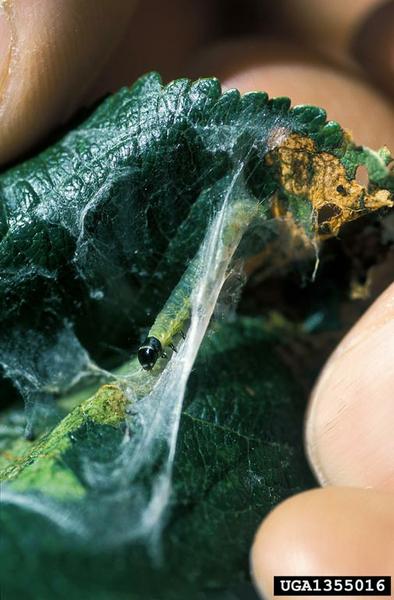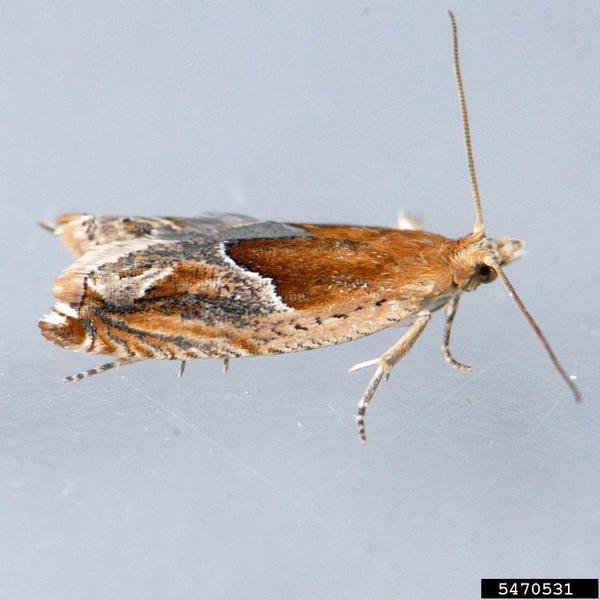Biology
Leafrollers are the caterpillars of tortricid moths known for rolling up leaves to protect themselves while they grow. In North Carolina strawberries, they are primarily a nuisance pest and occur rarely. Female moths lay eggs on leaves in masses that look similar to fish scales. Larvae (caterpillars) hatch out of the eggs a few days later and crawl in search of suitable leaves to roll. The larva creates a spider-web-like silk that it uses bind strawberry leaves together. Once constructed, the larva will spend the rest of its larval and pupal (cocoon) stages feeding and developing inside a leaf roll. Depending on the species, mature larvae are 1⁄2 to 3⁄4 in. long and turn into 1⁄4 to 1⁄2 in. long adult moths.
Damage
Larvae feed in the sides of the leaves inside of their leaf rolls. Sometimes larvae also roll the fruit calyx against the fruit and feed on the fruit underneath. The leaf rolls themselves may be considered unsightly in “you pick” operations. Populations of leafrollers large enough to reduce yield by larval feeding are extremely rare in North Carolina.
Management Options
Cultural
Good field sanitation can help reduce leafroller populations.
Conventional Insecticides
Infestations in North Carolina are rarely large enough to warrant spraying. Refer to the North Carolina Agricultural Chemicals Manual for materials recommended for use against leafrollers in North Carolina and the Southern Region Small Fruit Consortium Strawberry IPM Guide for regional recommendations. For other states, check with your local extension agent.
Biological
Many naturally-occurring wasps and flies parasitize leafroller caterpillars. Purchasing additional predators is not necessary or recommended.
More Information
Strawberry Leafrollers - UC IPM Online
North Carolina Agricultural Chemicals Manual
Strawberry IPM Guide - Southern Region Small Fruit Consortium
Publication date: June 23, 2014
N.C. Cooperative Extension prohibits discrimination and harassment regardless of age, color, disability, family and marital status, gender identity, national origin, political beliefs, race, religion, sex (including pregnancy), sexual orientation and veteran status.


